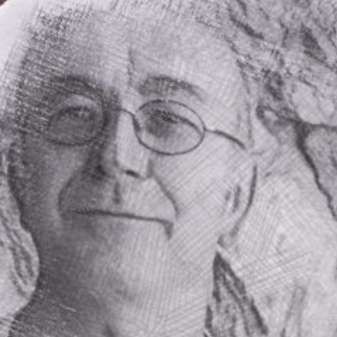In his programme note, director John Fulljames remarked that “any opera has many layers of authorship”, and that is truer of American Lulu than most.
Alban Berg compiled the original libretto for Lulu (1929–34) from two plays by Frank Wedekind: Erdgreist (“Earth Spirit”, 1895) and Die Büsche der Pandora (“Pandora’s Box”, 1904). At the time of Berg”s death in 1935 the third act remained incomplete. Contemporary Austrian composer Olga Neuwirth transplants the completed action to 1950s New Orleans, casting issues of freedom, entrapment, manipulation, dependency, struggle and self-determination in a new light. The backdrop of the American Civil Rights movement added a layer of racial inequality to the opera’s existing gender imbalance.
Although Lulu (played by the excellent Angel Blue) wasn’t shown specifically attending meetings or demonstrations, there were a couple of tableaux where she stood with her fist raised. Awareness of the era’s political realities mostly took the form of recordings of Martin Luther King Jr.’s speeches, as though being broadcast on radio – though I wasn’t sure that the voice was his. It is significant that these performances were staged a few days after the 50th anniversary of the March on Washington for Jobs and Freedom.
In tandem with authorship, opera involves multiple layers of production. Co-commissioned by Komische Oper Berlin and The Opera Group, this was a co-production by The Opera Group, Bregenzer Festspiele, Scottish Opera and the Young Vic in association with the London Sinfonietta. The orchestra present in this King’s Theatre performance for Edinburgh International Festival was Scottish Opera’s own, and they performed seamlessly for the work’s 100-minute duration. The 1950s New Orleans setting required them to double as a jazz band in addition to the original orchestral duties. In this regard, special mention is due to the sax players for their contribution of essential sleaze: Paul Saunders, Lawrence Gill, Robert Fairley and Gareth Brady on soprano, alto, tenor and baritone respectively. Huw Morgan’s soulful trumpet sound also contributed significantly to this soundworld. An effective detail of re-scoring was Neuwirth’s use of Wonder Morton organ for Berg’s jazz passages. John-Paul Gandi’s playing of this added a cinematic feel to proceedings.
On-stage vocal jazz was provided by Jacqui Dankworth in the role of the vulnerable Eleanor. While diction and tone were certainly jazz orientated, the lines were as angular as those of Berg/Neuwirth’s other characters and Dankworth pulled these off commendably. Not being an opera singer, she used a microphone, which in nightclub scenes looked fine, but was a little odd in more domestic scenes.
In a radio interview with Sean Rafferty, Angel Blue (Lulu) had praised two of her heroes and former colleagues, Chaka Khan and Plácido Domingo for being “always on”, meaning always ready and attentive. This described exactly her contribution to this production, in which she was tirelessly singing/acting or changing only to reappear moments later. Hers is a complex role involving portrayal of power over and subjugation by men. She was equally convincing in both.
The varied male characters required a wide range of character types and voices and I found all quite believable. Donald Maxwell’s resounding baritone voice served him well in portraying the powerful nightclub owner who, having seduced the twelve-year-old Lulu and maintained a liaison with her over many years, now urged her to stay away lest it harm his engagement. Robert Winslade Anderson’s role was also about power. In addition to playing Clarence, Lulu’s pimp in her later New York years, he seemed to symbolise male desire in general. Tenor Paul Curievici was convincing as Lulu’s racist second husband, and Paul Reeves, having played the corrupt Police Commissioner, furnished an excellently over-the-top banker in one of the work’s few light moments.
This year’s Festival theme – artists’ engagement with technology – was at its best in Finn Ross’ animations. Gilliamesque, but without humour, these covered Lulu’s imprisonment for Dr Bloom’s murder and Eleanor’s efforts to secure her release. Without in any way dodging the issue, this enabled the violent sexual encounter suffered by Eleanor to be conveyed in a way which was not gratuitous.
My only reservation concerned the English translation. Not knowing the original German, I can only comment that register didn’t always match character; perhaps a century and an Atlantic Ocean too far? For example, Bloom’s musical son Jimmy, seen at one point barefoot, slugging Bourbon from the bottle, is required to sing of Lulu’s “moral and spiritual gravitas”.
The hardest hitting and most memorable line came from Martin Luther King Jr., who said: “Love must be at the forefront of our movement if it is to be a successful movement”. It feels like a very long time since I heard a politician mention a “movement” and I can’t recall any in my lifetime mentioning “love”.


